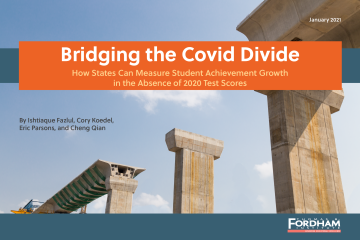In school districts and charter school networks nationwide, instructional leaders are developing plans to address the enormous challenges faced by their students, families, teachers, and staff over the past year. To help kick-start their planning process, we are proud to present The Acceleration Imperative, an open-source, evidence-based document created with input from dozens of current and former chief academic officers, scholars, and others with deep expertise and experience in high-performing, high-poverty elementary schools. It has four key design principles:
- Many students—especially the youngest children in the highest-need schools—will require extra help coming out of the pandemic, particularly in the form of extended learning time, high-dosage tutoring, and expanded mental-health supports.
- That extra help should complement, but cannot replace, what students need from schools’ core programs, such as high-quality curricula and positive school cultures.
- To make up for what’s been lost, we need to focus on acceleration, not remediation. That means devoting the bulk of classroom time to challenging instruction at grade-level or higher, and giving all students access to a rich, high-quality curriculum in English language arts, mathematics, social studies, science, the arts, and more.
- Decisions should be guided by high-quality research evidence whenever possible.
Practitioners can download and use the document as a starting point or an aid for their own planning purposes. It’s in the public domain, with no rights reserved, so feel free to plagiarize it at will!
Click here to view and download the June 2021 version of The Acceleration Imperative. To buy a book based on these recommendations, see Follow the Science to School: Evidence-based Practices for Elementary Education.



